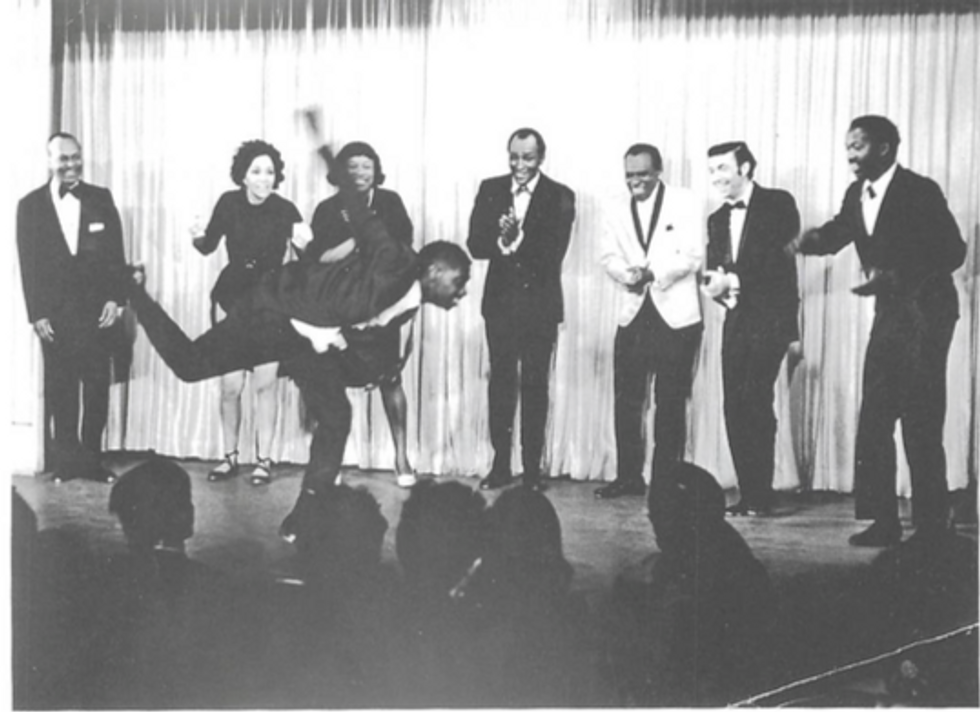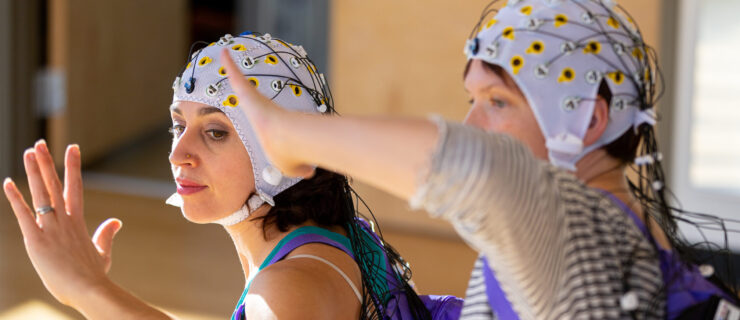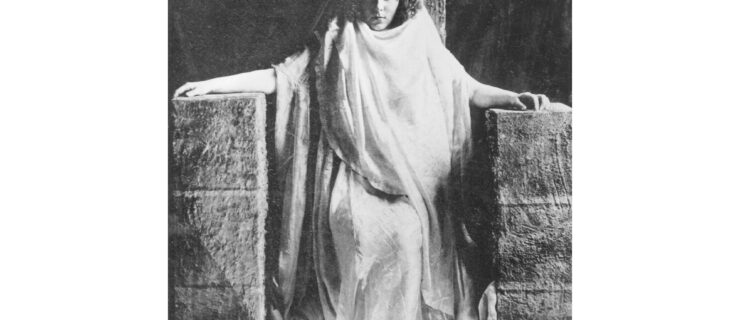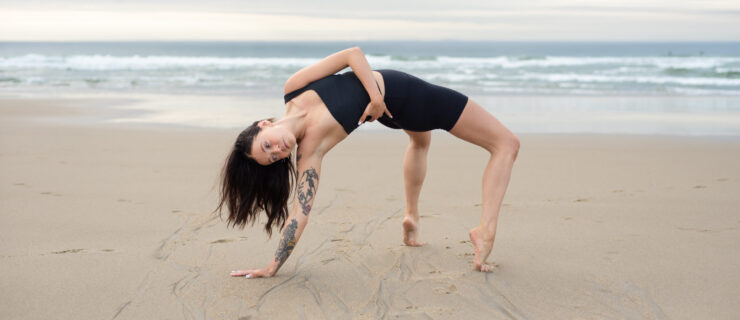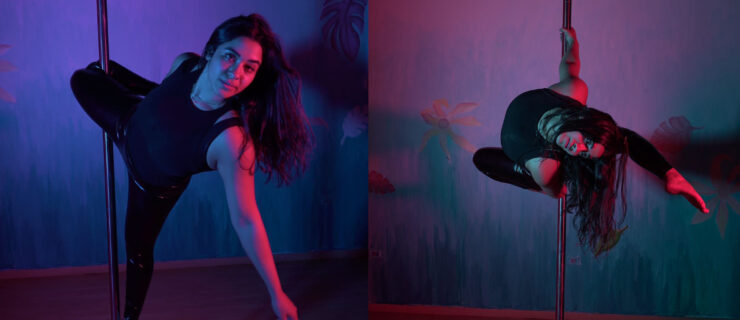Women Rising: Has the #MeToo Movement Smashed the Glass Ceiling for Women in Tap?
Writing in Dance Magazine in 1969 about Tap Happenings, those weekly tap dance jams at the Bert Wheeler Theater in New York City, critic Patrick O’Connor commented on dancers Sandra Gibson and Leticia Jay, the two sole female performers: “Gibson, the first of the red hot ‘soul’ mamas does a number, as does Leticia Jay, but face it, the evening belongs to the men.”
MichelaMarino Lerman
“I think we are beginning the conversation—the door is cracked open, but we need to confront more,” says international jazz tap soloist Michela Marino Lerman. With mentors that included Gregory Hines and James Buster Brown, Lerman was the only woman (since Sandra Gibson in 1949) to be inducted into the Copasetics fraternity of jazz hoofers. She has long-hosted weekly tap dance jams at Smalls, and is a frequent performer at Dizzy’s Club Coca-Cola, where she is a tap soloist and bandleader for Michael Mwenso and the Shakes.
Lerman confesses that while she has finally arrived at a place of respect, women in tap often get relegated to certain categories—women like Chloe Arnold and her Syncopated Ladies who has allied with pop star Beyoncé and been nominated for an Emmy for her choreography on the “The Late Late Show with James Corden”; women like Michelle Dorrance, recipient of the MacArthur “Genius” Award for combining the musicality of tap with the structural intricacies of contemporary dance. “But where are there openings for a female jazz tap solo improviser?” Lerman asks. “Soloists like Jason Samuels Smith and Derick Grant—I look at Savion Glover as a model. I want to be a soloist/musician—there is a difference there.”
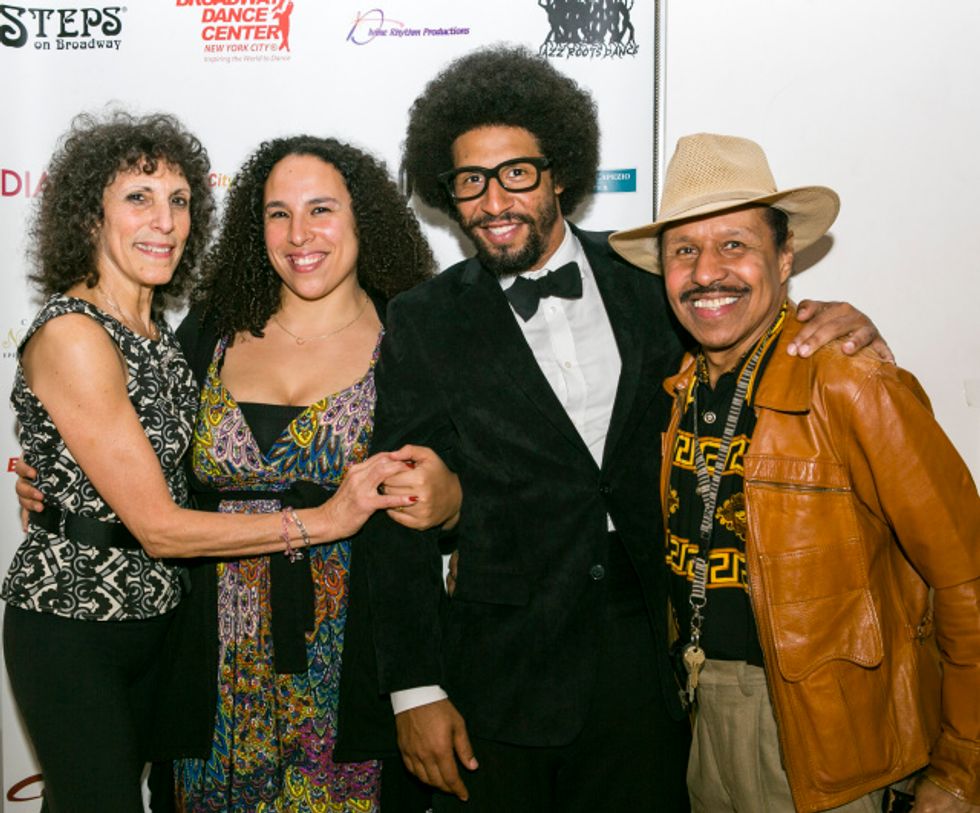
Elka Samuels Smith
“I am a producer, manager and arts administrator, and very aware of how I come across,” says Elka Samuels Smith, who founded the artistic management company Divine Rhythm Productions in 1999 to support professional tap dancers, performers, choreographers and musicians. “I am a very direct person by nature, and I can be taken differently than if I were a man. And if I have had to soften my approach, it is because there are people on power trips.”
The daughter of renowned jazz dancers Sue Samuels and JoJo Smith, and sister to tap dancer Jason Samuels Smith, Elka admits that she has had to deal with powerful men in the industry. “And those one-on-one conversations that happen behind the scenes—wow! The reaction is really crazy—complaining you are not being friendly enough.” Samuels credits her survival in the industry to other powerful women who have reassured her about being unapologetic.
So, are things changing? “Yes!” Samuels exclaims. “Men are tiptoeing a little bit more now because they are being accounted for obvious discrimination. Some would say we have come a long way, but others. . .you have to understand the dynamics. The business of tap dance for women may have evolved, alongside of music and culture, but we are still dealing with people taking away our reproductive rights. We have the #MeToo movement and Black Lives Matter. So it is hard to say that we have shattered anything! The playing field has not been totally leveled because of who holds the power.”
Dormeshia Sumbry-Edwards
“Have women been discriminated against?” asks Dormeshia Sumbry Edwards. “Yes. Absolutely. But I am not sure that the doors have ever been closed for women, not really.”
For Edwards, who was the sole female performer in the Tony-winning Bring in ‘Da noise, Bring in ‘da Funk and directed the rave-reviewed And Still You Must Swing which premiered at Jacob’s Pillow, women have always been in the forefront of tap. “I know who I got to see growing up, and I know the male dancers we all look up to—most of whose teachers were women!” Edwards is also keenly looking at the women coming up. “I am trying to look at this next generation, and there are young ladies kicking it out. There are a lot of men out there, but they might be outnumbered right now by the ladies.”
